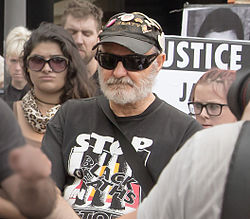IND/Social Justice
Australia as a nation has a history of promoting itself both domestically and internationally as an egalitarian society founded on the principles of democracy and social justice. In other words, a land in which all people, regardless of heritage or social circumstance, have equal access to society’s valued resources and rights, along with equal ability to achieve to their full potential. However, Indigenous Australians face disadvantage in all social indicators related to health, education, employment and criminal justice. This is a consequence of the ideology of ‘race’ and over two hundred years of economic, social and political marginalisation.
Thus, social justice has been described by the former Aboriginal and Torres Strait Islander Social Justice Commissioner, Professor Mick Dodson, as something which… must always be considered from a perspective which is grounded in the daily lives of Indigenous Australians. Social Justice is what faces you in the morning. It is awakening in a house with an adequate water supply, cooking facilities and sanitation. It is the ability to nourish your children and send them to school where their education not only equips them for employment but reinforces their knowledge and appreciation of their cultural inheritance. It is the prospect of genuine employment and good health: a life of choices and opportunity, free from discrimination (Annual Report of the Aboriginal and Torres Strait Islander Social Justice Commissioner, 1993, introduction).
